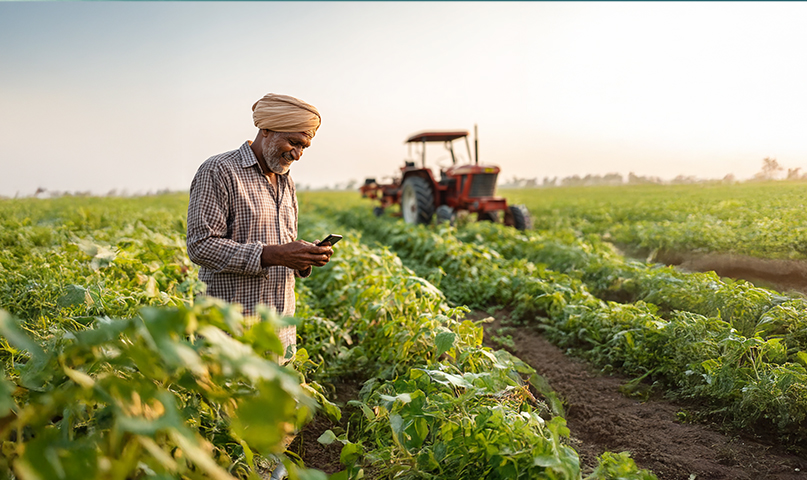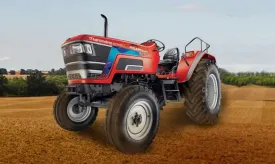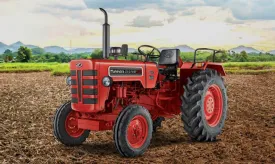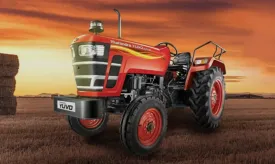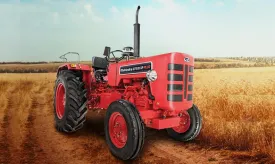How Tractor Technology Is Supporting Climate-Smart Agriculture

Agriculture is at the center of the climate change conversation. Farmers across India and the world are facing new challenges such as unpredictable rainfall, soil degradation, rising input costs, and declining yields. To overcome these hurdles, climate-smart agriculture has emerged as a sustainable approach that combines productivity with environmental responsibility. At the heart of this transformation lies tractor technology—especially innovations in smart farming tractors that are enabling farmers to adopt eco-friendly farming tech without compromising efficiency.
Brands like Mahindra tractors are playing a crucial role in this transition, offering modern machines that support sustainable agriculture while helping farmers maintain profitability.
What Is Climate-Smart Agriculture?

Climate-smart agriculture (CSA) is a farming approach that focuses on three main objectives:
- Increasing productivity to ensure food security.
- Building resilience to climate variability and change.
- Reducing greenhouse gas emissions where possible.
This means using methods and technologies that protect natural resources, cut carbon footprints, and enable long-term sustainability in farming.
Role of Tractor Technology in Climate-Smart Agriculture
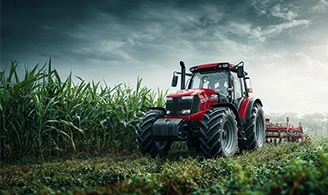
Modern tractors are no longer just machines for ploughing and hauling—they are becoming multi-functional hubs for smart farming. Here’s how advanced tractor technology supports climate-smart agriculture:
1. Fuel Efficiency & Reduced Emissions
Traditional tractors were heavy fuel consumers, contributing to both high farming costs and carbon emissions. Today, companies like Mahindra tractors design engines with advanced combustion systems that ensure higher fuel efficiency and lower emissions. This makes farming more cost-effective and environmentally friendly.
2. Precision Farming with Smart Tractors
Smart tractors equipped with GPS, IoT sensors, and data analytics allow farmers to manage their fields with accuracy. For example:
- Optimizing seed placement and fertilizer usage.
- Reducing overlap during tillage or spraying.
- Monitoring soil moisture to prevent over-irrigation.
This precision reduces wastage of resources, conserves soil fertility, and lowers input costs—all key goals of sustainable agriculture.Also Read: 10 Best Tractor Implements for Smarter Farming
3. Compatibility with Eco-Friendly Tractor Implements
Modern tractors are designed to work efficiently with advanced implements such as zero-tillage seed drills, mulchers, and rotavators. These implements minimize soil disturbance, conserve organic matter, and prevent erosion. By adopting these tools with smart farming tractors, farmers contribute to soil health and long-term sustainability.
4. Renewable Energy Integration
Some tractors are being developed to run on alternative fuels such as biodiesel, compressed natural gas (CNG), or even electricity. As this eco-friendly farming tech evolves, it offers farmers cost savings while cutting down on fossil fuel dependence.
5. Remote Monitoring & Data-Driven Decisions
With telematics and remote monitoring systems, farmers can track fuel consumption, maintenance schedules, and tractor performance in real time. This prevents unnecessary breakdowns, extends machine life, and ensures optimal usage. In the long run, such tractor technology reduces both costs and the carbon footprint of farming.
Mahindra Tractors Leading the Change

As India’s leading tractor manufacturer, Mahindra tractors have been at the forefront of innovation in climate-smart agriculture. Their new-generation models are designed not just for power but also for sustainability and farmer convenience.
- Fuel-efficient engines: Reduce diesel usage, cutting both costs and emissions.
- Advanced hydraulics: Improve implement efficiency, making soil-friendly farming practices easier.
- Smart features: GPS-enabled models for precision farming and optimized resource use.
- Versatility: Ability to work with sustainable implements like mulchers, planters, and conservation tillage tools.
By making smart farming tractors more accessible, Mahindra empowers small and large farmers alike to adopt sustainable agriculture practices without major financial strain.
Benefits of Climate-Smart Tractors for Farmers
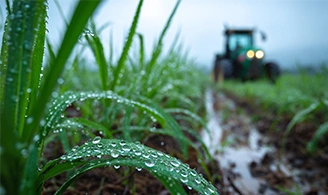
Adopting tractors designed with eco-friendly features directly benefits farmers in multiple ways:
1. Lower Input Costs
Efficient engines and precision tools reduce fuel, fertilizer, and pesticide usage.
2. Improved Soil Health
Using implements like zero-till drills ensures less soil disturbance and better water retention.
3. Resilience to Climate Change
Smart monitoring systems help farmers make timely decisions during irregular weather patterns.
4. Better Productivity
By reducing waste and improving efficiency, farmers achieve higher yields with fewer resources.
5. Market Advantage
Increasingly, buyers and consumers prefer food grown with sustainable agriculture practices, giving farmers an edge.
The Road Ahead: Eco-Friendly Farming Tech
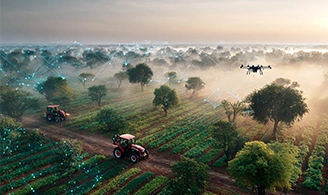
The future of farming will continue to be shaped by technology. We can expect:
- Wider adoption of electric tractors for zero-emission farming.
- Use of AI-powered tractors to predict weather, soil, and crop conditions.
- Stronger integration between tractors, drones, and IoT devices for holistic farm management.
In this journey, Mahindra tractors and other leading manufacturers will remain crucial in delivering affordable, eco-friendly farming tech that is tailored for Indian conditions.
Final Thoughts

Climate change is no longer a distant issue—it is a present-day reality for farmers. The solution lies in adopting climate-smart agriculture methods, and tractor technology is at the center of this transformation. With smart farming tractors offering precision, fuel efficiency, and compatibility with sustainable implements, farmers can move towards eco-friendly farming tech without sacrificing productivity.
As Mahindra tractors and other innovators continue to develop smarter, greener machines, Indian farmers will be better equipped to face climate challenges while ensuring long-term food security. The shift to sustainable agriculture is not just an environmental necessity—it’s a path to profitable and resilient farming.










